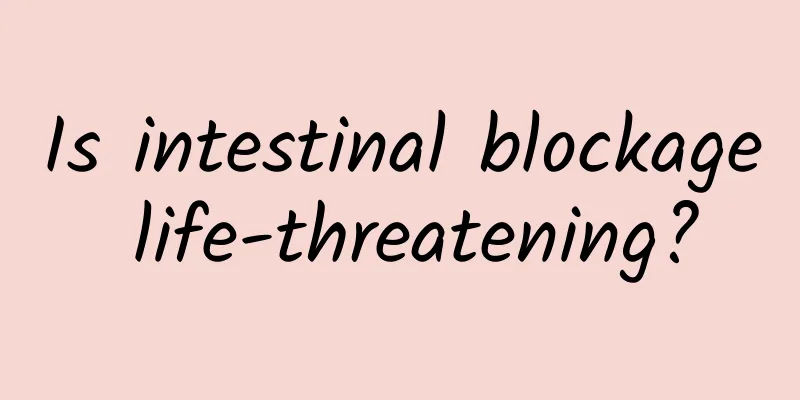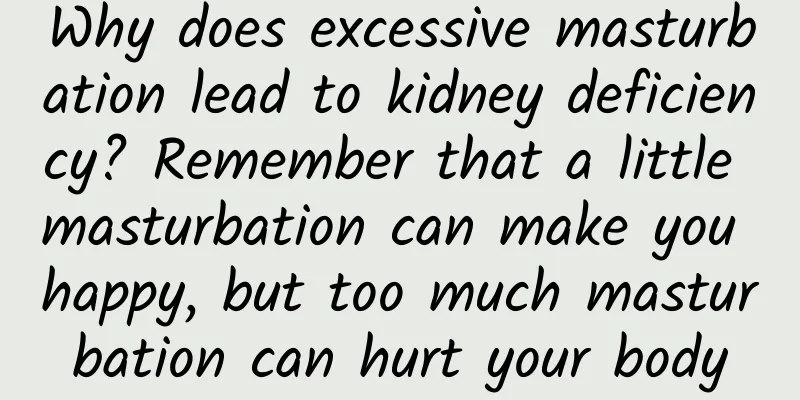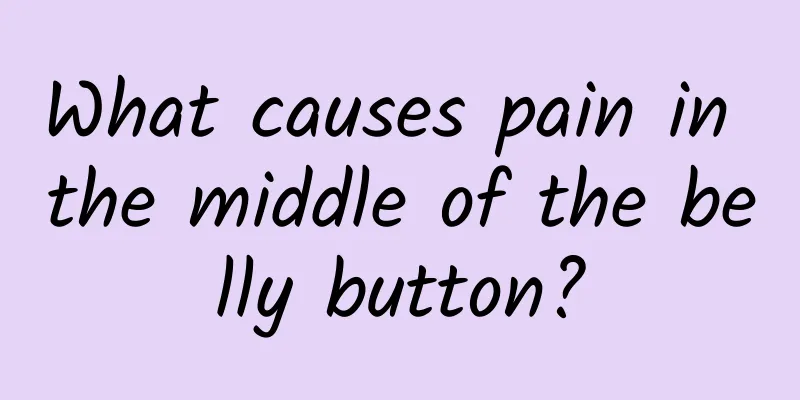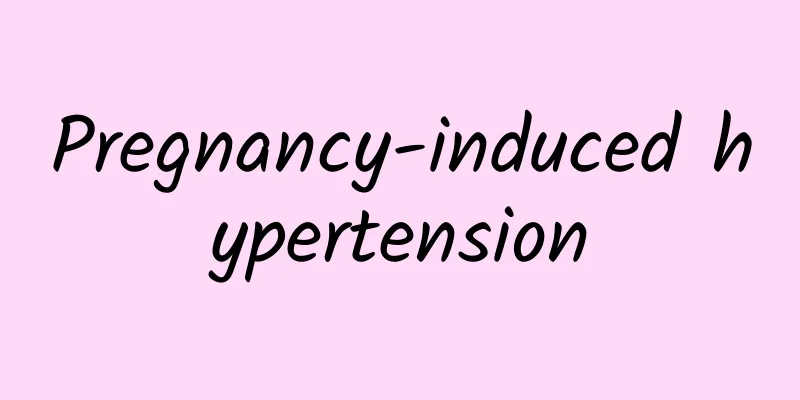Is intestinal blockage life-threatening?

|
Intestinal obstruction, also known as intestinal obstruction, is a relatively serious disease. In the early stages of the disease, it can cause severe abdominal pain, vomiting and other symptoms. If it is not treated promptly, it may even lead to large-scale infection, which may endanger the patient's life. Therefore, when intestinal obstruction occurs, it is necessary to receive timely and good treatment. For example, in serious cases, surgical treatment may be required in a timely manner. Clinical manifestations Abdominal pain: Mechanical intestinal obstruction manifests as paroxysmal abdominal colic, which is caused by increased intestinal peristalsis in order to overcome the obstruction. The abdominal pain may be accompanied by intestinal rumbling. If the intervals between abdominal pains continue to shorten, or even become persistent abdominal pain, it may be a manifestation of strangulated intestinal obstruction. Vomiting: In the early stages of intestinal obstruction, vomiting is reflexive and the vomitus is food or gastric juice. It is generally believed that the higher the obstruction site, the earlier and more frequent the vomiting occurs; while in low-level obstruction and colon obstruction, vomiting occurs late and less frequently; the vomitus may be fecal-like. Abdominal distension: appears later. Abdominal distension is not obvious in high intestinal obstruction, but is obvious in low intestinal obstruction and colon obstruction. The anus stops passing gas or bowel movements: After complete intestinal obstruction occurs, the patient often stops passing gas or bowel movements. However, in a small number of patients, there is still residual feces and gas below the obstruction, which can still be discharged, so the existence of intestinal obstruction cannot be denied. Physical examination generally shows an acutely distressed facial appearance, and early vital signs generally do not change much. In the late stage, symptoms such as increased body temperature, rapid breathing, decreased blood pressure, and increased pulse may appear.treat Western medicine treatment ① Non-surgical treatment: correct water and electrolyte imbalance and acid-base imbalance. Gastrointestinal decompression: It is one of the important methods for treating intestinal obstruction. It can absorb the gas and fluid in the gastrointestinal tract through gastrointestinal decompression, relieve abdominal distension, reduce the pressure in the intestinal cavity, reduce bacteria and toxins, and help improve local and systemic conditions. Prevention and treatment of infection: The use of antibiotics is of great significance in preventing and treating bacterial infections. ②Surgical treatment: Surgical treatment should be performed for various types of strangulated intestinal obstruction, intestinal obstruction caused by tumors and congenital malformations, as well as patients who do not respond to non-surgical treatment. The specific surgical method should be determined according to the cause, nature, location and general condition of the obstruction. |
<<: What to avoid eating if your heart is blocked
>>: What to do if you have indigestion and chest congestion after eating
Recommend
What should I do if my left big toe is numb?
In life, our bodies often encounter some minor pr...
What is the disease of lack of hematopoietic function?
Everyone knows that the human body needs a consta...
How to treat papular acne
Love of beauty is human nature. Many people hope ...
What causes belly button pain in girls
For women, if there is pain in the navel area, th...
What causes inflammation?
When it comes to inflammation, many friends' ...
How to treat left pleural effusion?
The body is the capital of revolution. Whether it...
What deficiency causes dwarfism?
In fact, dwarfism is mostly not caused by a lack ...
What are the common diagnosis and treatment methods for genital herpes?
Many people are afraid of genital herpes, thinkin...
How to treat weak spleen and stomach? A recipe for regulating the spleen and stomach.
The spleen has the functions of transporting nutr...
What is the cause of watery diarrhea?
Many people are prone to diarrhea in normal times...
Diet for patients with fractures
In daily life, fractures are easy to occur if you...
What to do if urticaria keeps recurring
Urticaria is mainly caused by skin allergies, so ...
What to do if there is a blood clot in the blood vessel
Blood clots in the blood vessels are a relatively...
What to do if your feet are smelly and sweaty
In life, you may find that some people have smell...
Can color Doppler ultrasound of a 6-month-old baby tell the gender?
When the pregnancy is six months, a color ultraso...









